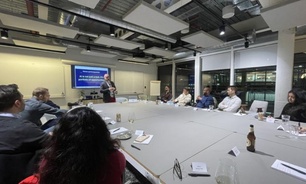How organisations in Singapore can get creative to attract cyber security talent
 by Elmer Tan
by Elmer Tan
Introduction: cyber experts reluctant to move
Ongoing uncertainty in the global economy has made it a challenging time for organisations looking for cyber security talent in Singapore. With Singapore recognised by many as the most expensive city in the world, businesses are increasingly offshoring and nearshoring operations to make cost savings, which means potential hires are concerned about being relocated. The result of this uncertain backdrop is that candidates are reluctant to move, which means hiring companies are often having to offer a 20-30% pay increase to fight off the competition.
To avoid paying a premium for talent, organisations need to go beyond salary and offer something different to attract the talent they need. Let’s look at some of the ways hiring companies can attract cyber security talent in Singapore.
1. Hiring on skills, not job titles
Over the last few years, we’ve seen a change in approach from hiring companies, who have shifted their focus from filling roles to finding the right talent. They’re increasingly willing to speak to good quality candidates even if there isn’t necessarily a role for them in the organisation. If the person’s got the right mix of skills and the right culture fit, the business is quite prepared to create something for them and pay a premium to get them into the company.
In a really competitive talent market where hiring can be incredibly expensive, creating a role to suit a candidate’s skills is proving a more efficient way for organisations to bring the right talent onboard. This poses the existential question of whether the organisation should build its workforce around its existing roles and structures, or whether it should be more flexible and build the business around the skills available. Perhaps we’ll increasingly see a mixture of the two as employers try to secure the best cyber security talent on the market before someone else does.
2. Constant growth and progression
With cyber threats expanding in scope all the time, cyber security professionals require ongoing learning opportunities and continuous professional development to help them stay updated with the rapidly evolving cyber landscape.
Encourage your people to complete any relevant training courses and consider giving them time off to upskill themselves. To boost engagement, some organisations are integrating gamification and immersive technologies like VR and AR into learning programs, and utilising adaptive learning platforms to tailor their training to their people’s individual learning preferences. It’s all part of giving your people every opportunity to expand their skills and remain at the cutting edge of their profession, which will not only stand them in good stead for their future careers, but also help to futureproof your business.
3. A culture that values cyber security
Cyber security is an incredibly important part of every organisation, yet too often it’s viewed as a support function – something that exists merely to allow the rest of the business to operate. Ensure your organisation values the input of your cyber security team and recognises its strategic importance in defining your future direction. Regularly communicating with the business on why cyber security is important, sharing useful security tips, and showing how the team is protecting your organisation and its people, will help to create a culture where cyber security is truly valued, and the kind of environment where a candidate knows they can succeed.
Make sure you show potential employees a vision for cyber security in your organisation. This could be in the form of a technological roadmap indicating the future direction of your technology function, including investment, big upcoming projects and cyber’s place within that.
4. Working with the latest technologies
The cyber security sector never stands still, and neither do the experts working within it. Cyber security professionals want to work with the latest technologies, so offer potential employees the chance to work on interesting and challenging projects utilising emerging platforms. This needs to be combined with the right training both to use these technologies effectively and to adapt to new ones.
As it becomes more challenging for human teams alone to identify emerging security threats, cyber professionals increasingly need to be able to use AI to help analyse large amounts of data, recognise patterns and identify risks. Give them the chance to work with AI and machine learning model development and auditing, data science and AI-specific threat intelligence. Post-quantum cryptography is also increasingly important as organisations look to protect themselves from attacks by quantum computers.
5. An efficient recruitment process
Organisations are understandably more cautious about hiring in a difficult market, and therefore want to be absolutely certain about a potential hire. Unfortunately, this results in lengthy recruitment processes that cause some candidates to lose interest. When you know someone’s right for your business, moving quickly is crucial. Not only does it show them that you have confidence in their ability, but it also lessens the likelihood of them joining another organisation.
Be honest and realistic about the number of interview stages you really need. Before the process begins, make sure all your key stakeholders will be available throughout to hold interviews or assess candidates. Have an alternative lined up if one of your key decision makers will be unavailable at any point, so the process doesn’t slow down. It’s incredibly off-putting for a candidate when the process is put on hold because someone’s away from the business.
Conclusion: make cyber a part of everything you do
By tying cyber security into your culture and strategic vision for the business, you can create an environment where cyber security professionals feel valued and strategically relevant. You then need to offer them the right progression opportunities and exciting projects with the latest technologies so that you can get the best out of them.
If you’d like to find out more about what’s going on in the cyber security market in Singapore, request a download of our Singapore Cyber Security Talent Market Report 2025. Whether you’re an organisation looking to hire the right cyber security talent, or a professional looking for your next role in cyber security, please contact our technology and digital enablement team.
Fresh Content
Explore our latest market insights, career advice, and more.
















